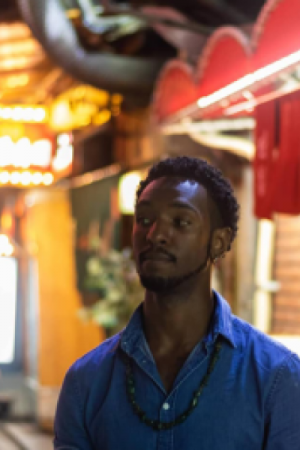Kofi M. Bazzell-Smith (Art and Design) is a member of the 22—23 graduate cohort for “Imagining Otherwise: Speculation in the Americas,” the inaugural Interseminars project funded by the Mellon Foundation. He shares about his experiences with Interseminars below.
The Interseminars Initiative is gearing up for the second round of the grant in 23—24! Learn more about Interseminars. View the Graduate Fellowship Call for Proposals.
How has your understanding of “speculative practice” evolved over the course of this fellowship so far?
My understanding of speculation is freeing the mind from functional fixedness and learning to do things that we ‘aren’t supposed to be able to do.’ To speculate is to work outside the confines of institutionalized thinking. Speculating isn’t just about asking questions, it’s reimagining what can be asked, which leads to discovering what can be done.
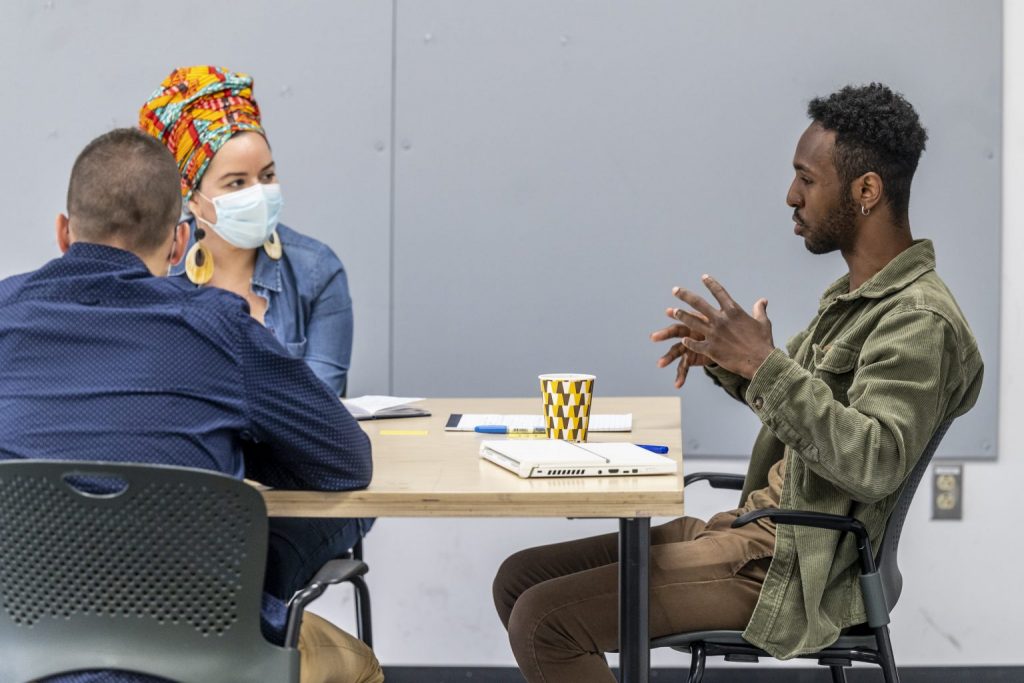
A person with my background ‘isn’t supposed to be’ conducting a graduate fellowship at the University of Illinois. Before joining this project, I’ve felt limited by the academy’s rigid systems of classification and its restricted approaches to acquiring, exploring, and disseminating knowledge. I never imagined that I could belong to the category of ‘researcher.’
“The discussions that we’ve had thus far as an interdisciplinary cohort have impacted the way that I approach the word ‘research’ and how I define what I do. I found that I don’t have to compartmentalize my careers into separate areas of my life and that my ideas have value.” — Kofi M. Bazzell-Smith
How has the Interseminars Initiative impacted the way you approach your research?
As an artist (manga) who tells stories in two languages, a scholar intent on building bridges between the US and Japan, and a professional athlete, my interests are eclectic and may appear unrelated. However, rethinking what the word “research” means beyond its strict and exclusive academic connotation has allowed me to build a more encompassing definition—one which allows me to think freely and to ‘live’ my research— a practice that makes it more meaningful, more rewarding, and more effective.
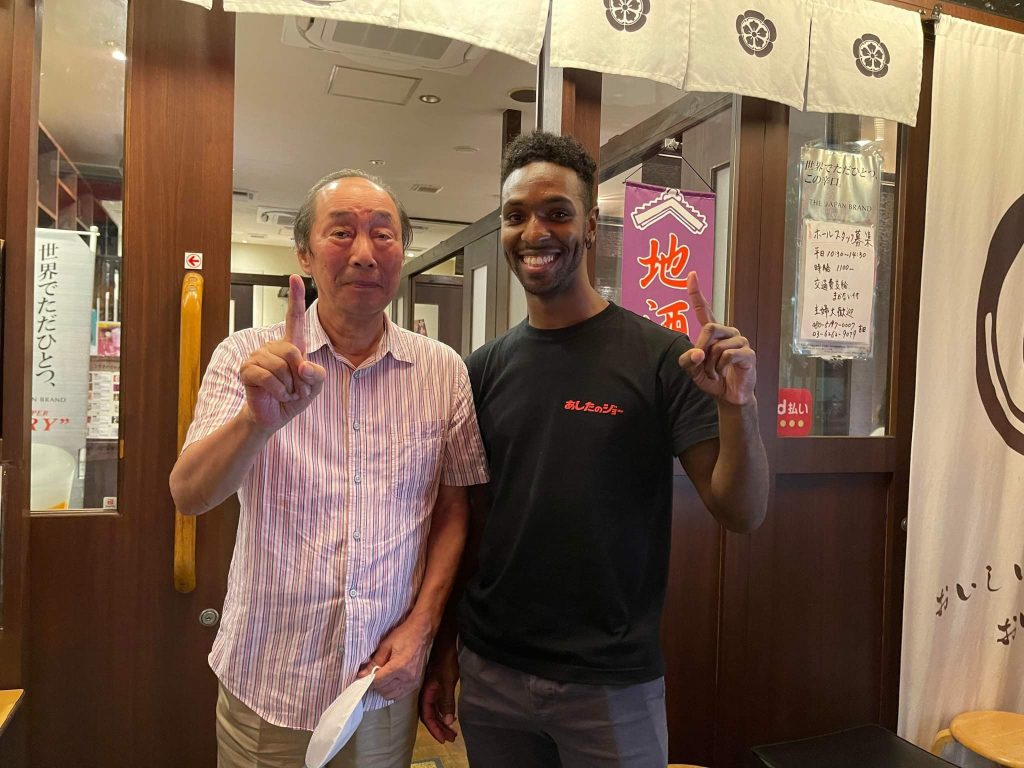
Support from the Interseminars initiative allowed me to conduct a month of research in Japan in summer 2022. Free from the restraints of having to conduct research at an academic institution, and free from the usual constraints of having to submit a detailed predetermined research plan for approval, I was able to make several contacts ‘in the field’—contacts that I would not have been able to make through prearranged emails, and developed a living, evolving research project which deepened as it progressed.
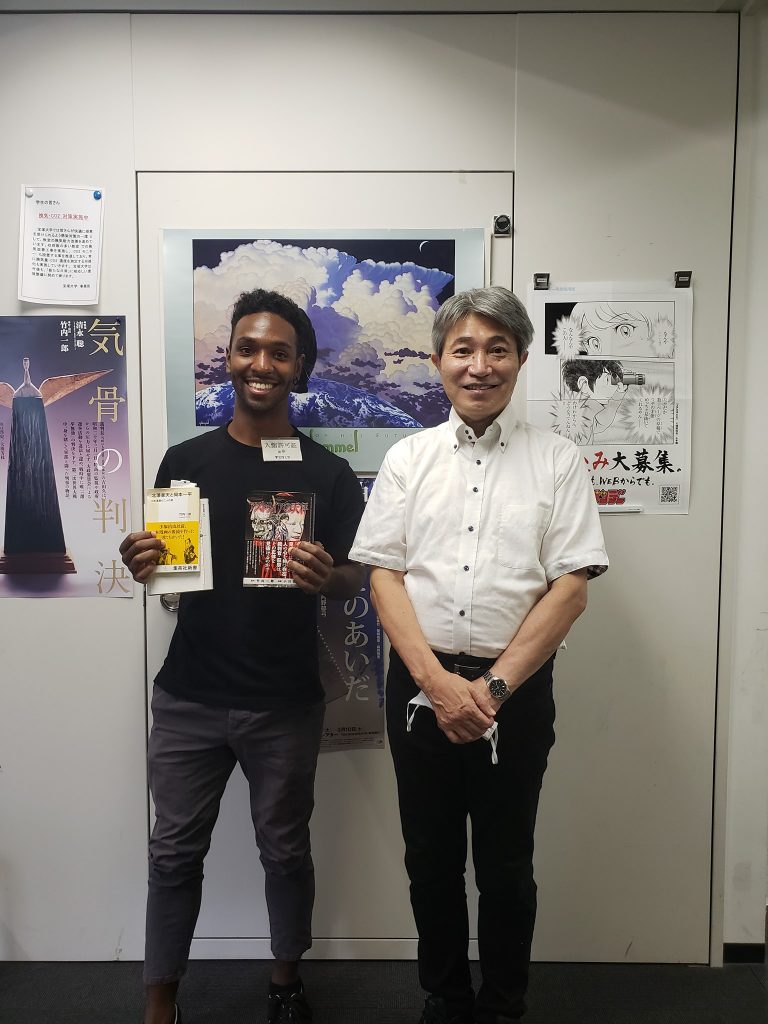
I established relationships with artists, athletes, publishers, and schools, and was able to create practical exchange opportunities for students in the US and Japan to collaborate. Due to the Interseminars Initiative’s open approach to research, I was able to make concrete progress toward my goal of becoming a cultural bridge through art, language, boxing, and education— an endeavor which could not thrive without an interdisciplinary methodology.
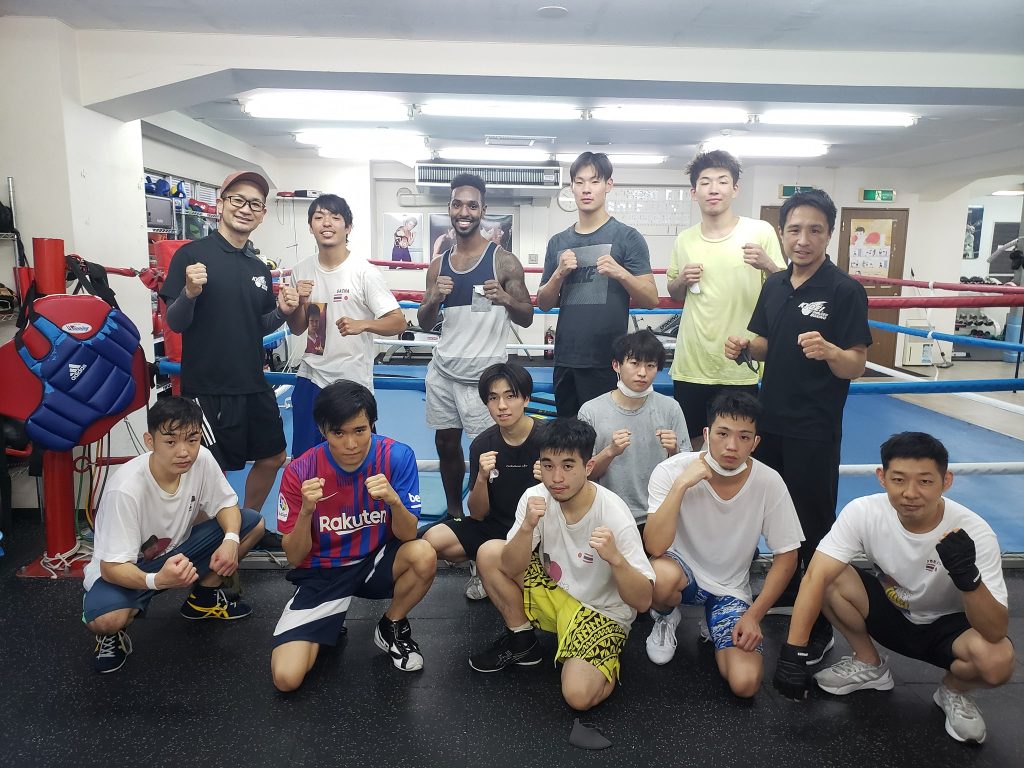
A Black boxer who draws comics ‘isn’t ‘supposed to be’ conducting graduate research in Japan or building international relationships between universities.
My time so far with my interdisciplinary cohort has taught me to push the boundaries of what my practice entails and challenged me to dive deeper into myself to find, not only what speculation means, but how I can position and reimagine my research to do things that it ‘isn’t supposed to be able to do.’

How will you bring interdisciplinary collaboration into the next phase of your graduate school experience?
I’m working with several departments and organizations on and off campus on a few projects: curating an international art exhibition with a Japanese university, developing programming for American students to learn directly from manga professionals online with a live translator, and bringing a Japanese artist to the states so we can collaborate and teach about art, culture, and language. My cohort is conducting an intensive series of lectures and workshops where we (all from different departments) will teach each other about our unique skills, methods, and methodologies. This is an exploratory project and I’m excited to see what new ideas and new projects arise from it.

